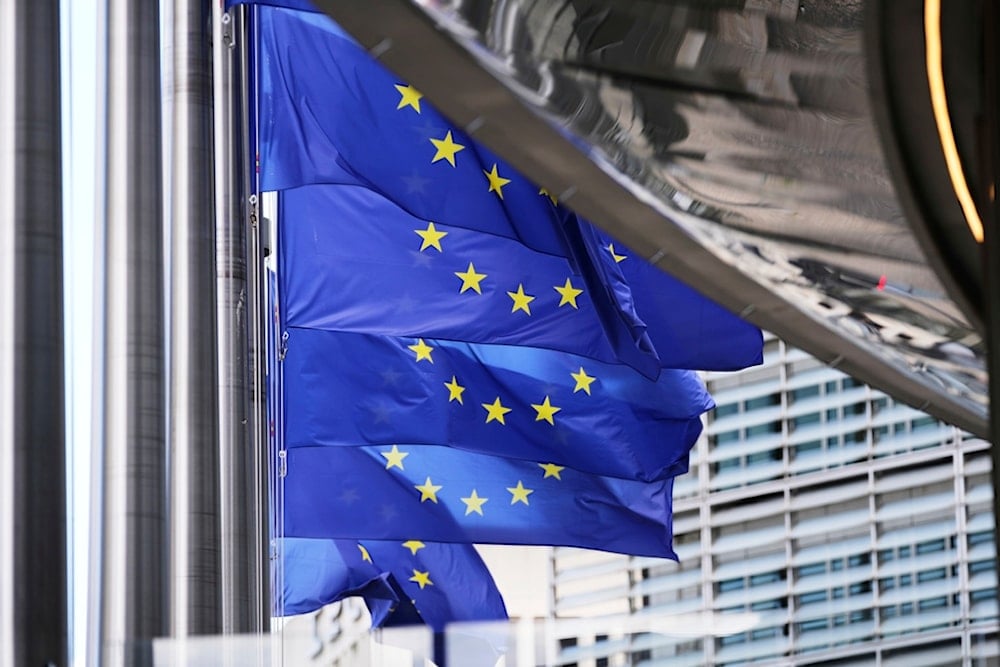Europe's Trump concessions risk democracy, trade losses: FT op-ed
In a Financial Times op-ed, Martin Sandbu argues Europe's concessions to Trump on defense and trade reflect opportunism that weakens its democracy and global standing.
-

European Union flags flap in the wind outside EU headquarters in Brussels, Thursday, August 21, 2025. (AP Photo/Virginia Mayo)
In an op-ed published for the Financial Times on Monday, writer Martin Sandbu argues that Europe's leadership has chosen a path of accommodation toward US President Donald Trump, a strategy he characterizes as both unprincipled and self-defeating.
The commentary points to two emblematic concessions: agreeing to Trump's demand that NATO members pledge 5% of GDP to defense and endorsing a trade arrangement that, Sandbu writes, "leaves the EU much worse off than before."
The deal in question imposes a 15% tariff on around 70% of European exports to the US, while leaving in place 50% duties on steel and aluminum. Key industries such as wine, spirits, pharmaceuticals, and semiconductors remain heavily penalized, while the EU also made symbolic commitments to purchase hundreds of billions in US energy and to boost investment in the American economy.
Analysts note that the pact is politically symbolic rather than legally binding, but its practical impact is higher costs for European producers, weakened competitiveness, and a diminished ability to set the rules of global trade.
Sandbu notes that policymakers justify this approach as pragmatism, insisting it is preferable to "kneecapping Ukraine's defense and outright trade war." Yet, as he observes, much of the rhetoric surrounding these commitments is insincere, with pledges that are "not realistic or intended to be kept, but dumb Trump bought them." To him, this is opportunism disguised as strategy, a short-term gamble that erodes Europe's longer-term standing.
Trumpification of Europe
The op-ed further argues that European leaders' reliance on flattery and symbolic concessions risks entrenching Trump's "conception of politics as TV performance," thereby normalizing authoritarian tendencies on the international stage. The trade concessions reinforce this dynamic: rather than defending WTO rules or building a coalition against unilateral US tariffs, Europe has accepted Trump's terms and in the process weakened its credibility as a guardian of the multilateral order.
Most critically, Sandbu warns that this strategy imperils European democracy itself. By making promises leaders cannot admit publicly, whether in defense or trade, governments cultivate distrust and undermine accountability, creating what he calls "a poison for democracy — and European liberal democracy in particular." He contrasts this with Ukrainian President Volodymyr Zelensky, who openly resisted Trump's pressure and, in Sandbu's view, suffered no worse consequences for doing so.
Sandbu concludes that Europe's posture is accelerating what he terms the "Trumpification of politics across the continent," a trend that threatens to leave lasting scars not just on Europe's economy, but on its democratic institutions and political culture.
Read more: Europe slams Trump trade deal as humiliating concession

 3 Min Read
3 Min Read










